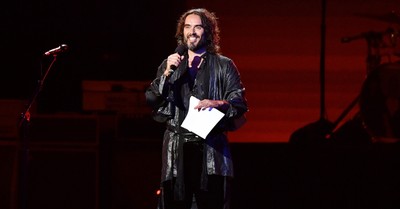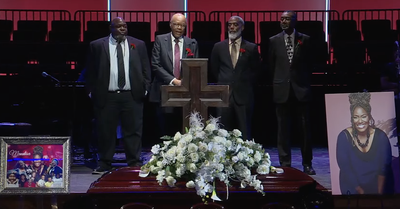November 13, 2008
ISTANBUL (Compass Direct News) – Two years into a trial for “insulting Turkishness” that has been light on evidence and heavy on mud-slinging at Turkey’s Protestant community, a court proceeding last week brought no progress.
Another witness for the prosecution failed to appear in the trial of Turkish Christians Turan Topal and Hakan Tastan, charged with “insulting Turkishness” and spreading Christianity through illegal methods. Moreover, a Justice Ministry answer to the court about the viability of charges under Turkey’s controversial Article 301 had yet to arrive at the court last week.
In the last hearing in June, Silivri Criminal Court Judge Mehmet Ali Ozcan ordered a review of the two Christian converts’ alleged violations of the controversial article of the Turkish penal code on “insulting Turkishness.” But the court is still waiting for the Justice Ministry to decide whether they can be tried under Article 301 of the penal code.
The judge set the next hearing for Feb. 24, 2009 while the court awaits a response on whether the Christians can be charged under the controversial article.
Topal and Tastan are still charged with reviling Islam (Article 216) and compiling information files on private citizens (Article 135).
In what critics called “cosmetic” revisions of Article 301, the Turkish government amended it in May to require Justice Ministry permission to file such cases. Put into effect on May 8, the changes also redefined the vague offense of “insulting Turkishness” to read “insulting the Turkish nation.”
While the court awaited a decision on Article 301, in the hearing on Nov. 4 it did free the defendants from forced attendance at future hearings. This, according to defense lawyer Haydar Polat, was the only progress made by the court; he added that a witness or evidence would have been better. For lack of these, he said, the prosecution has needlessly dragged out the case.
“In both cases [against them], the only acceptable progress is the testimony of a witness,” said Polat. “Then again, the fact that the defendants are free from having to attend every trial is in a sense progress too.”
Lame Witnesses
The initial charges prepared by the Silivri state prosecutor against Tastan and Topal were based on “a warning telephone call to the gendarme,” claiming that some Christian missionaries were trying to form illegal groups in local schools and making insults against Turkishness, the military and Islam.
Despite a court summons sent to the Silivri and Istanbul gendarme headquarters requesting six named gendarme soldiers to testify as prosecution witnesses in the case, none have stepped forward to testify.
“They will be called in the next hearing as well,” Polat told Compass.
At the June 24 hearing, two teenage witnesses for the prosecution declared they did not know the defendants and had never seen them before facing them in the courtroom. Several witnesses have failed to show up on various trial dates, and last week another witness called by prosecution, Fatih Kose, did not appear.
“There is no lack of witnesses, but as far as we are concerned, these characters’ accounts are irrelevant to the truth and full of contradictions,” said Polat. “I mean there is no believable and persuasive argument, nor a coherent witness.”
Last week a police officer from the precinct where Topal and Tastan were allegedly seen doing missionary activities was summoned to court to testify. He told the court that he indeed worked in the precinct but knew nothing about the activities of the two Christians.
Eleven months ago, the appointed prosecutor himself had demanded that the court acquit the two Christians, declaring there was “not a single concrete, credible piece of evidence” to support the accusations against them. This prosecutor was removed from the case, and two months later the judge hearing the case withdrew over prosecution complaints that he was not impartial.
Two key figures pressing the Article 301 charges and promoting sensational media coverage of the Silivri trial proceedings are now jailed themselves, unable to attend the hearings.
Both ultranationalist lawyer Kemal Kerincsiz and spokesperson Sevgi Erenerol of the Turkish Orthodox Church – a Turkish nationalist denomination with no significant following – are accused of playing leading roles in Ergenekon, an ultranationalist cabal of retired generals, politicians, journalists and mafia members under investigation for conspiracy.
Since mid-January, 47 people have been jailed and face trial for involvement in the alleged crime network, said to have orchestrated numerous killings and violence as part of a nationalist plot to overthrow the Turkish government by 2009.
Asked about the chances of closing the case that has made no progress for two years due to lack of evidence against the defendants, Polat said he was hopeful his clients would find justice in the Turkish legal labyrinth.
“As lawyers, we believe that both of our clients will be acquitted,” he said. “Come February we expect that the Justice Ministry will not approve the opening of a public case on the basis of ‘insulting Turkishness.’”
Slandering Christians
The trial of Topal and Tastan has included its share of mud-slinging at Turkish Protestants, estimated at 3,000 to 3,500 people in a country of 70 million, deepening the nation’s prejudices against them.
This legal battle has been less about guilt or innocence and more about tainting the community’s image, according to a member of the legal committee of the Alliance of Protestant Churches in Turkey.
The Christian Turk from the legal committee told Compass that in 2006, when the charges against Topal and Tastan first came to light, there were news reports for days claiming that Christians tricked children in elementary schools, paid people to come to church and gave women away for sex, among other absurd assertions.
“The goal was to create disinformation, and they succeeded at portraying Christians in a negative light,” he said.
The source said that this was the primary goal of ultranationalist lawyer Kerincsiz’s team, which he believes is behind the cases brought against Topal and Tastan as well as the delay in the outcome.
“On the first day of the hearings, when the case opened, I told those around me that nothing would come of this case,” he said.
The legal committee member said media created a psychological war against Turkish Christians. Other members of the Protestant community believe another goal was to deter any evangelism or outreach by Turkish Christians.
“It was to discourage the whole Christian community and quash them and discourage evangelism,” said another source.
The member of the legal committee said he believes that eventually Topal and Tastan will be acquitted. But even if they win the court case, the damage from the publicity war on the church will not be as easy to repair.
“I think everything will stay the same, because the case won’t be reported in the news,” he said. “The issue was not about whether these two were guilty or not. When this first broke out it was in the news for days. When it is over it will barely make it to a newspaper corner, and we won’t be able to give a message for the public because we don’t wield media power. We comfortably carry our quiet voice, and we will until then.”
Copyright 2008 Compass Direct News










